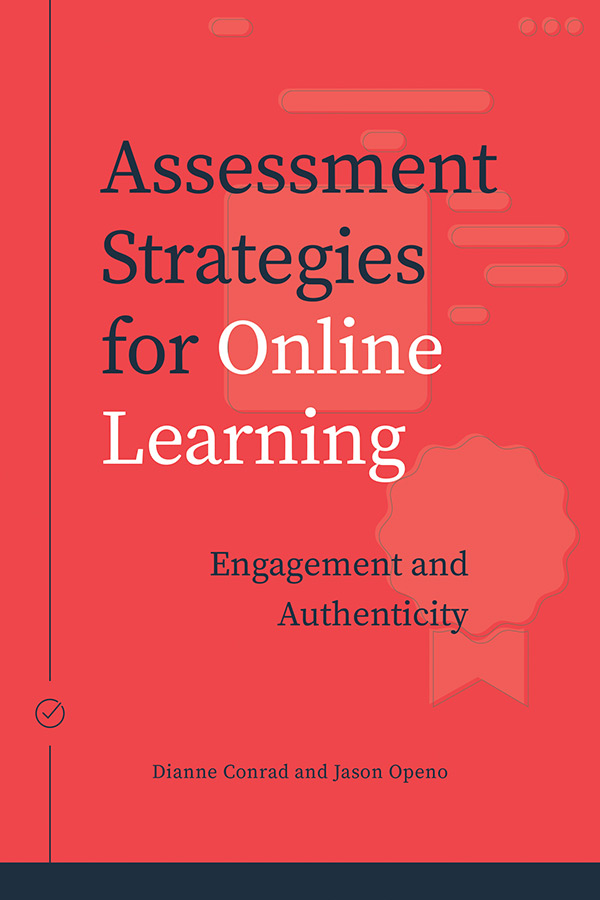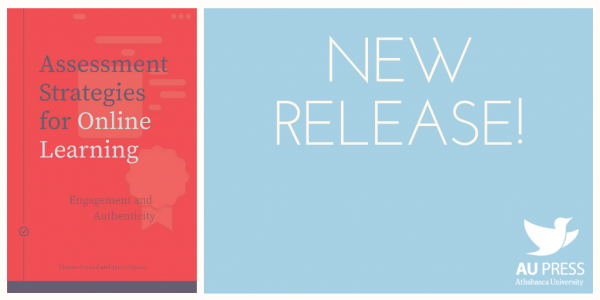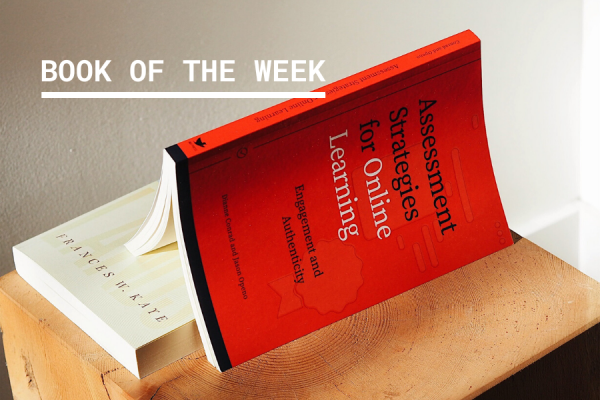Welcome to the third instalment of #AUPBookOfTheWeek. This week, we’re highlighting a book that contains very timely advice for anyone who is now working in an online classroom. Assessment Strategies for Online Learning: Engagement and Authenticity by Dianne Conrad and Jason Openo is an innovative book that outlines the philosophies and principles of online learning and provides hands-on strategies for assessing and engaging learners.
In this investigation of assessment methods and learning approaches, Conrad and Openo explore assessment strategies that engage learners and authentically evaluate learning. They insist that online and distance learning environments afford educators with an opportunity to embrace only the most effective face-to-face assessment methods and to realize the potential for engaged learning in digital spaces. Guided by a constructivist philosophy, the authors delve into the heart of the complex dynamics of teaching and learning in the humanities and social sciences. What they discover will be of use to all those who create and engage in learning environments, online or otherwise. In the final chapter of the book, the authors conclude their study with a set of best practices and reflections written by experienced and well-regarded educators who continue to reform approaches to assessment.
In an interview with Inside Higher Ed, Jason Openo notes that “The most pressing concern I hear from faculty is the need for professional development in the area of assessment. Behind this is a pressing concern for quality, equity and fairness. Assessment has consistently been one of the most important needs identified in several faculty development surveys, and despite the complexity involved in designing and conducting research, faculty development has a cumulative impact on teaching, including improved assignments.” You can read the full interview here.
In a CIDER session presented just after the book’s release, Dianne Conrad talks about how assessment is an important part of the learning cycle and should reflect the educator’s values. She argues that authentic assessment presents learners with opportunities to engage with prior knowledge and to build relationships between their own learning and real-life situations. This presentation is a great companion to the book.

You can download Assessment Strategies for Online Learning for free on our website.


